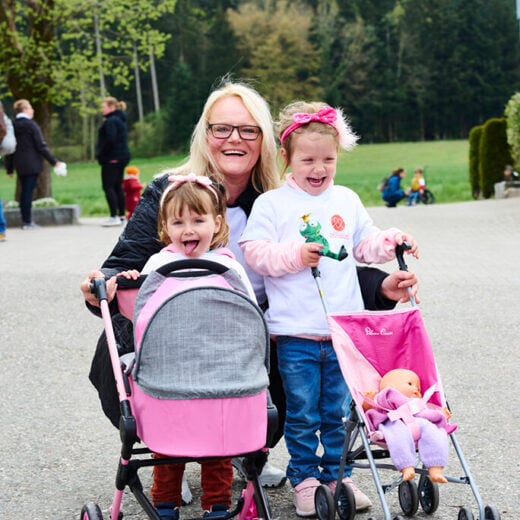Interview with Manuela Stier, Founder of the Association for Children with Rare Diseases

Manuela Stier founded the Association for Children with Rare Diseases in 2014. She offers insight into her work and the topic of rare diseases in her interview with ZWEI Wealth.
Thank you, Manuela, for the opportunity to have this conversation together today.
What are rare diseases?
In Switzerland, around 630,000 people are affected by rare diseases, 350,000 of them children and adolescents. There are an estimated six to eight thousand different rare diseases worldwide. Of these, only about 5% have been researched. Given their rarity, the likelihood of developing treatments for most of these diseases is low. As a result, the focus remains on improving the quality of life for those affected
Many people affected are never properly diagnosed. This causes many challenges, such as when seeking benefits from insurance providers like the Swiss invalidity insurance (IV), which relies on a catalog of recognized (and consequently researched) diseases for determining coverage.
Rare diseases exhibit highly diverse symptoms, which can vary within a specific condition, depending on the stage at which they manifest.
Are many rare diseases undertreated because of their limited research potential?
Perhaps not in the traditional sense of "conventional" therapy, as per the standards of mainstream medicine. However, innovative therapeutic approaches do exist, as exemplified by Israel's "First Step." Through close collaboration with parents, therapy is imparted in an intensive program involving the affected child, resulting in a gradual enhancement of the child's quality of life. This improvement encompasses areas like motor skills, responsiveness and communicative abilities.
How does the Association help affected families?
The Association focuses on three objectives:
- Financial support: in 2022, approximately CHF 500,000 was disbursed to families.
- Connecting families: since 2014, we have already invited more than 8,900 people.
- Knowledge transfer: we are the leading resource on the topic in Switzerland.
We provide families with financial assistance, therapies, and support measures. This support extends to provisions that enhance the quality of life for the affected children, including items not covered by health or invalidity insurance. One example is the funding of a specialized e-tandem for a girl who is visually impaired due to her rare disease.
Upon receiving a diagnosis of a rare disease, families often find their world shaken, necessitating a complete reorganization of their lives. The people affected are often overwhelmed. Connecting with other families facing similar challenges not only aids in coming to terms with the situation but also gives those affected the courage to establish a new, albeit different, family life following the diagnosis of a rare disease.
We often work with donors to organize family events. For example, thanks to 760 employees of Siemens Mobility Switzerland, we were able to organize a family event in Interlaken. The employees chose to forgo their Christmas gifts in 2022 and instead donated the funds to our sponsoring association.

How did the Association come about?
When I was 50, I decided that I wanted to get involved in a social project. So on February 20, 2014, I founded the non-profit Association for Children with Rare Diseases together with Prof. Dr. Thierry Carrel as president. There are now 780 families in our free family network. All the projects we tackle are focused on their needs. To me, it is very important to initiate projects that have a lasting impact.
What is your best memory of the past ten years?
Beni has fascinated me enormously. He has "Wolf-Hirschhorn Syndrome" and was one of the first children we supported. He was unable to make eye contact, and it was painful for the parents that he could not participate in family life. We then arranged for the family to receive therapy with "First Step." A few years later, I happened to be in the Aa Valley at the Dinosaur Museum and ran into his family there. Although he is usually in a wheelchair, his father helped him to his feet and the boy took a few steps towards me. This was "pure goose bumps" for me. This is exactly why I get involved with families like Beni’s – to help make the lives of these children truly meaningful and enjoyable.
Thank you, Manuela, for this fascinating and touching interview.
The interview was conducted by Nadeschda Hoidn, partner at ZWEI Wealth.
Additional information about the Association for Children with Rare Diseases: www.kmsk.ch


